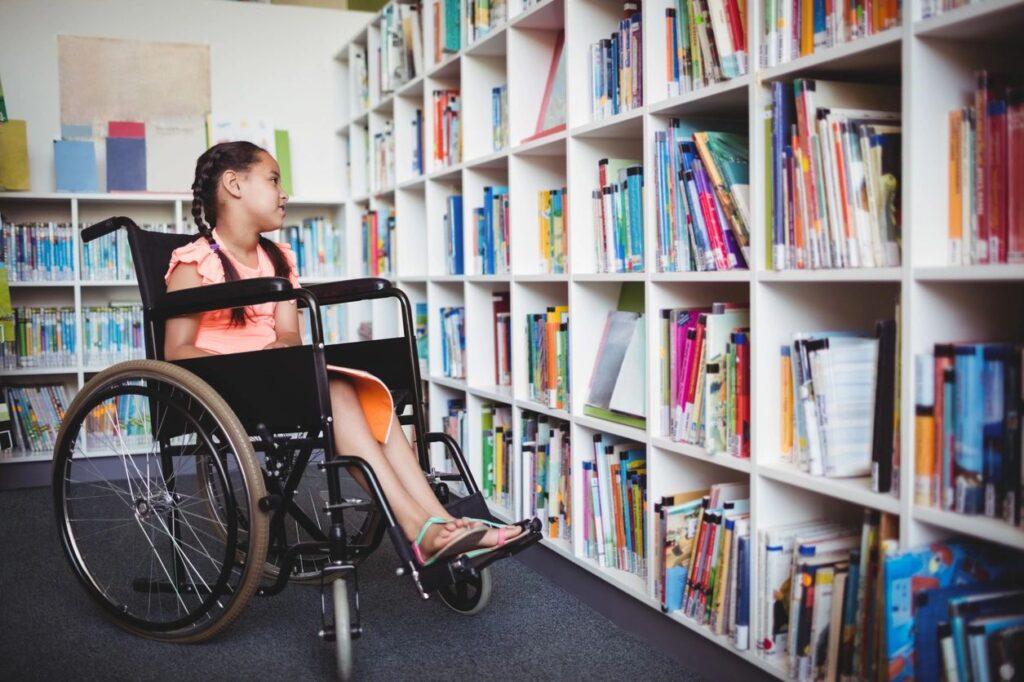When we think about building early literacy skills, we often read and tell fictional stories. Most adults have fiction picture books that they loved as a child, books that motivated their love of literacy and reading. Conversely, adults may remember nonfiction as dry and boring and have yet to learn how much the genre has changed and expanded in recent years. As in all things, children have diverse interests, and while some children are drawn to fiction, others may prefer nonfiction. After all, most of us read nonfiction to learn about and navigate the world in our daily lives.
According to the National Science Teacher Association, “As many as 75 percent of young readers enjoy nonfiction as much as or more than fiction, and fact-loving analytical thinkers get particularly excited about reading to learn (Clark and Teravainen-Goff 2020; Correia 2011; Mohr 2006; Repaskey, Schumm, and Johnson 2017). For them, nonfiction can be the gateway to literacy (Caswell and Duke 1998) and a portal to knowledge that fuels their natural curiosity and sense of wonder. When these students lack access to the nonfiction books they crave, they may lose their enthusiasm for reading and learning (Moss and Hendershot 2002)” (https://www.nsta.org/science-and-children/science-and-children-fall-2023/kids-love-nonfiction).
In my experience as a teacher, when children find a book they love, regardless of the topic, it motivates them to learn to read.
Include a variety of nonfiction topics in your classroom library.
Pay attention to your children’s questions when they are exploring something. If they are asking about “What makes something work?” or “Why is this happening?” try to find books on their topic of interest. Happily, there are now many nonfiction books about a wide variety of topics. See Edutopia, Nonfiction Books for Preschoolers: https://www.edutopia.org/article/nonfiction-books-preschool-students/.

Way to bring nonfiction to your literacy program:
1. Do an audit of your classroom library. If it’s less than 50 percent nonfiction, plan to systematically add more nonfiction over time.
2. Think carefully about the books you select for read-alouds. Try to make sure that at least 50 percent are nonfiction.
3. Follow your students’ interests. Make a note when children ask “how” and “why” questions. You may not have the answer now, but let them know what a great question it is and that you will get them the information.
4. Share a list of upcoming science units and your students’ interests with the children’s librarian at your local public library. Ask them to help you locate finely crafted books to incorporate into lessons.
5. Using the Large (25×30) Sticky Pads, write a collaborative nonfiction story with students. Start with a simple prompt: What is an animal? What is the wind? What did you eat for breakfast? Write down what the children say and leave it up in the room for them to view. The teacher’s handwriting is important. Make sure you form the letters clearly and write large enough so the words can be easily seen.
6. Spread the word—kids love nonfiction. As more teachers, librarians, parents, and caregivers become aware of the critical role nonfiction can play in the lives of children, we can break down the barrier between children and the books they crave.
Let’s cultivate a love for reading in our young minds together.
Elevate your understanding of early childhood education and child development with my engaging preschool education workshops tailored for both teachers and parents. These workshops provide valuable insights, practical strategies, and effective tools to enhance your role in nurturing young minds. Whether you’re an educator or a parent, these sessions aim to empower you with the knowledge and skills essential for fostering a positive learning environment. Dive deeper into the world of preschool education and child development by exploring my workshop offerings. For more valuable content and updates, follow me on Instagram and connect with me on LinkedIn. #EarlyYearsConsult
#EarlyChildhoodEducation #ChildDevelopment #PreschoolWorkshops #EducatorServices #ParentingTips #LearnAndGrow

